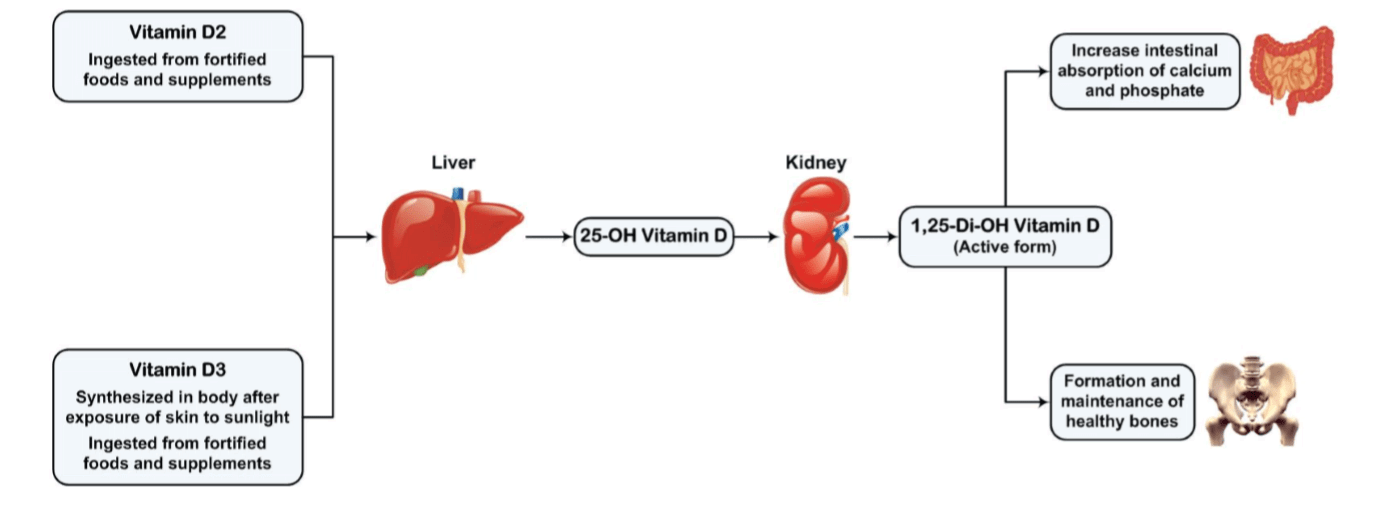Vitamins and changes
Vitamin D is a group of fat-soluble secosteroids responsible for intestinal absorption of calcium and phosphate. It plays an essential role in the formation and maintenance of healthy bones. Moreover, there is an increasing body of research showing that the Vitamin D group metabolites are also important for many other cellular functions, including immune mediation. The main sources of Vitamin D are supplementation in the food supply (Vitamin D2) and sunlight. Since many Canadians are at risk for Vitamin D deficiency, additional supplementation, usually in the form of oral Vitamin D3, is recommended. Both Vitamin D2 (derived from yeast) and Vitamin D3 (produced by animals, including humans) are capable of being metabolized to the active form, 1,25-Dihydroxycholecalciferol (1,25-Di-OH Vitamin D). A recent survey of serum levels of 25Hydroxycholecalciferol (25-OH Vitamin D) in patients tested at LifeLabs in BC found that 20% of patients had levels of <50 nmol/l, a level where patients are at increased risk for osteoporosis.





